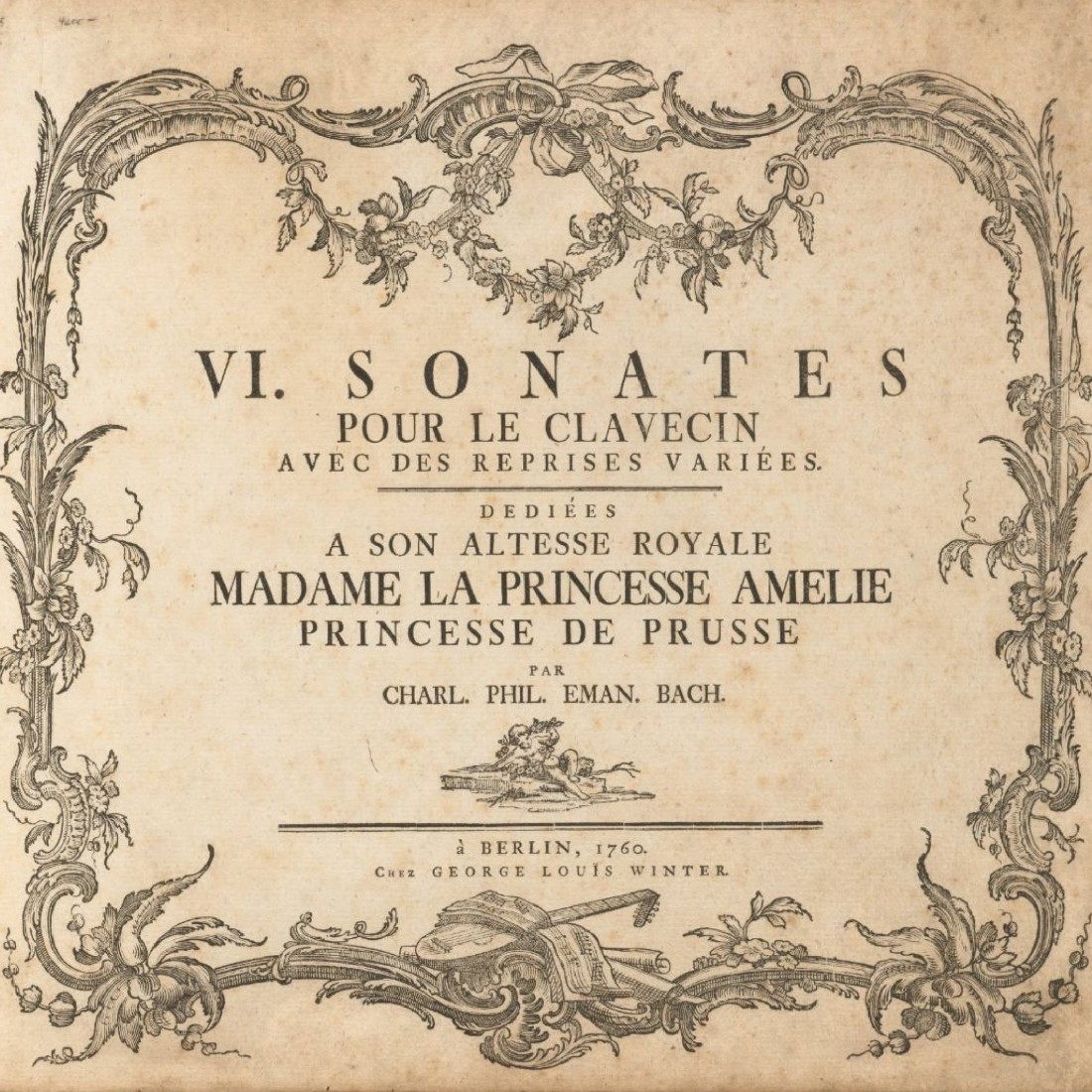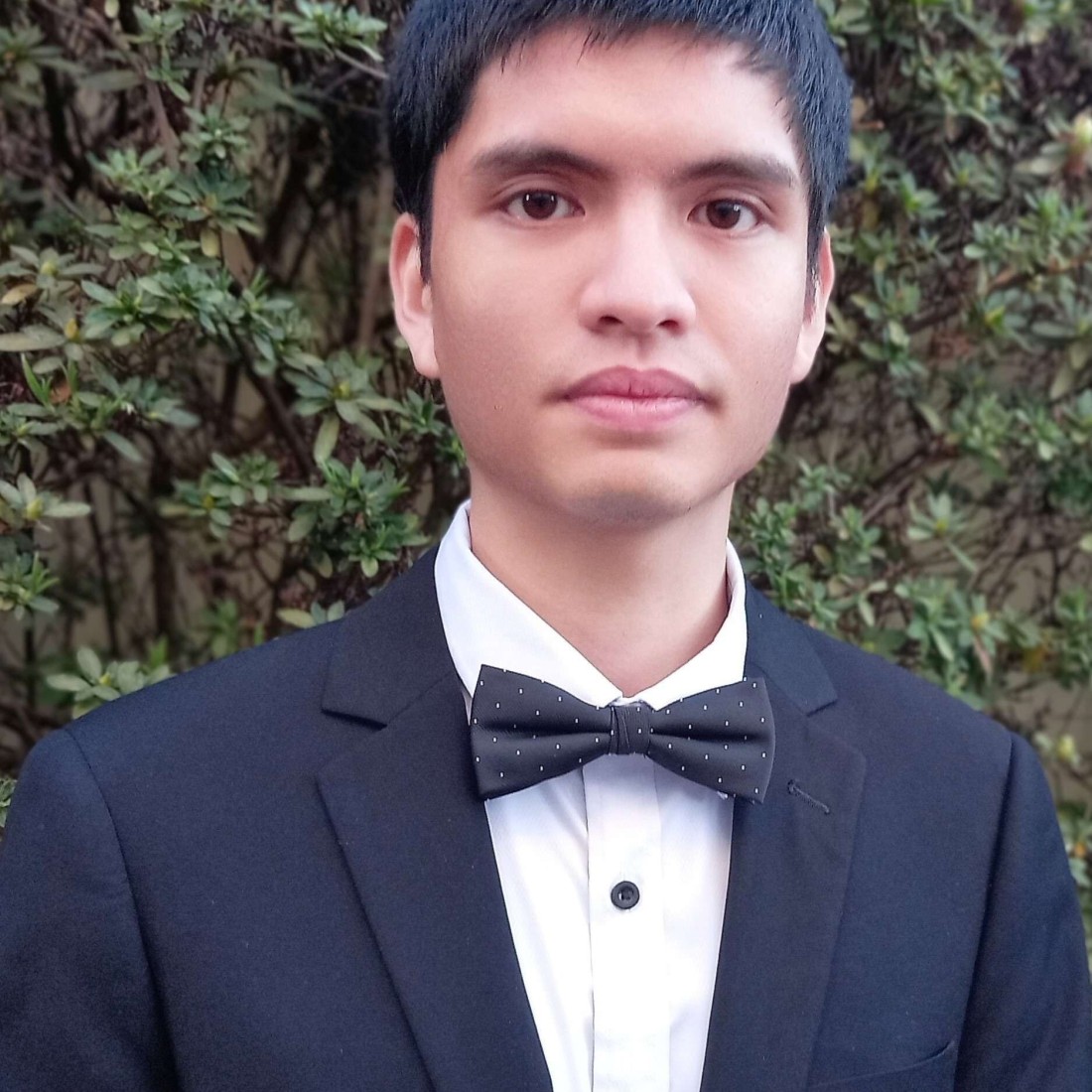
Datum en locatie
van 11 juli 2023 tot 12 juli 2023
Het Koetshuis & D'Hane-Steenhuyse
Open Workshops & Concerts
Eventvan 11 juli 2023 tot 12 juli 2023Historical Piano Summer Academy 2023
During a ten-day workshop at the Orpheus Institute six young musicians test the boundaries of what the Enlightenment liked to call “good taste.” We invite you to attend the final two days.

Title page of C.P.E. Bach’s Sonaten mit veränderten Reprisen (Berlin, 1760)
“Today, as soon as one repeats oneself [...] it is indispensable to make changes.”
C.P.E. Bach, Sonatas with Varied Repeats, Wq. 50 (1760)
"When you say the same, say it differently.” In the second half of the eighteenth century this was the motto of orator and musician alike. Carl Philipp Emanuel Bach and Wolfgang Amadeus Mozart were absolute masters in “spontaneous” embellishment and variation.
As performers today, can we “change” the score of Mozart or Bach? During a ten-day workshop at the Orpheus Institute six young musicians test the boundaries of what the Enlightenment liked to call “good taste.” They engage with playing, improvising, and composing at the clavichord and fortepiano—two instruments at which Bach and Mozart excelled.
We invite you to attend the final two days.
Schedule
Tuesday July 11, 2023
Pyramid Hall, Koetshuis, Korte Meer 20A
9:00–12:45 Open masterclass
Tom Beghin (Orpheus Institute), Juliane Brandes (Universität Mozarteum), and Benjamin Steens (Conservatoire de Strasbourg)
17:15 Drinks in the garden of D’Hane-Steenhuyse
18:00–19:15 Evening concert
W.A. Mozart and C.P.E. Bach
Sonatas with Varied Repeats, part one
Wednesday July 12, 2023
Royal Salon, D’Hane-Steenhuyse, Veldstraat 55, Gent
9:00–11:45 Open masterclass
Tom Beghin (Orpheus Institute), Juliane Brandes (Universität Mozarteum), and Benjamin Steens (Conservatoire de Strasbourg)
12:00–12:45 Lunch concert
Composing in late-eighteenth-century style
17:15 Drinks in the garden of D’Hane-Steenhuyse
18:00–19:15 Evening concert:
W.A. Mozart and C.P.E. Bach
Sonatas with Varied Repeats, part two
Download the PDF here.
Registration
Both the concerts & workshops are free to attend.
However, for the concerts, we kindly ask you to register here.
Participants
Christophe Alvarez

Christophe Alvarez is a concert pianist and composer. An associate professor of piano at the National Academy of Music of Cluj-Napoca, he is frequently a jury member of international competitions, and regularly gives masterclasses. Christophe graduated with two doctorates in Music Theory and in Piano Performance, and published in scientific journals. He performed as a soloist in major concert halls and festivals in North America and in Europe. With a vast experience in early music, he recently reconstituted the lost music of the French Ballet du Temps (1654), with world-premieres in Canada and in Romania. Christophe is also the composer of several movie soundtracks.
Olha Dotsenko

Olha Dotsenko studies fortepiano at the University of Music and Theater in Munich in the class of Professor Christine Schornsheim. Olha graduated with honours, earning a Bachelor’s degree, Master's degree and assistant-internship in piano performance at the Kharkiv I. P. Kotlyarevsky National University of Arts. She is also a laureate of numerous international competitions and has participated in music festivals in Italy, Austria, Hungary, Ukraine, and Serbia. She looks at the Orpheus Summer Historical Piano Academy as an opportunity to learn more about the specifics of playing historical keyboards and to understand more deeply the style of the music she plays.
Andrei Hadap

Andrei Hadap is a pianist, composer, scholar, and music teacher based in Sydney, Australia. He completed his Bachelor of Music at the Sydney Conservatorium of Music in 2021, where he received First-Class Honours. He is currently a PhD candidate at the same institution, writing a thesis titled “Inside the Teacher’s Studio,” which explores the historical methods of teaching harmony and counterpoint at the keyboard. Andrei made his orchestral debut, performing Brahms’ First Piano Concerto in 2018 and is the inaugural Continuo Fellow for Pinchgut Opera. He is a teacher at the Conservatorium High School, one of Australia’s specialist music high schools, where he teaches harmony, counterpoint, improvisation, and composition based on historical methods.
Wei Lee

Wei Lee is an accomplished musician, holding a Master's degree in historical fortepiano and solo piano from the Hochschule für Musik und Theater in Cologne. She is currently pursuing a Bachelor's degree in harpsichord and a master class fortepiano certificate program in Munich. Wei Lee has won prestigious prizes in solo piano and lied-duo competitions, performing worldwide with renowned artists and at esteemed events like Klavierfestival Ruhr and Vielklang Festival. She has also given recitals in Southwest China and participated in events such as Liedwelt Rheinland and Köln Claviernacht.
Hui Han Lui

Hui Han Lui is currently a PhD student at Maynooth University, Ireland. Prior to this, she has completed an MA in Performance and Musicology from Maynooth University and a Bachelor of Music from Universiti Putra Malaysia. Her research focus is on piano techniques, body movements and gestures in piano performance.
Otto Popescu

Otto Popescu hails from Toronto, Canada and started to learn piano at the age of three. He is currently pursuing a Bachelor’s of Music in Piano and Early Music Performance at McGill University in Montreal. Otto has the privilege of studying piano with Kyoko Hashimoto, fortepiano with Ilya Poletaev, and harpsichord with Elizaveta Miller. He has won awards and scholarships at the local, provincial, and national level, including First Prize in the Canadian Music National Competition. In his free time, Otto enjoys archery, chess, composing, playing duets with his sister, swimming, and skiing.
Tomasz Ritter

Tomasz Ritter was the 1st Prize winner of the 1st International Chopin Competition on Period Instruments in Warsaw (2018). He is a graduate of the Moscow P. I. Tchaikovsky Conservatory and Hochschule für Musik und Theater in Hamburg. Among his teachers were I. Rumiancewa, A. Lubimov, M. Uspenskaya, M. Voskresensky, and H. Rutkowski. Period instruments and historically informed performance practice play a significant role in Ritter's musical life. At the same time, from his early years he was influenced by modern piano traditions, especially those in the Russian school. Tomasz Ritter regularly performs in Europe and North America, as well as in Russia and Japan.

Johann August Rosmaesler, engraving in Franz Seydelmann, Sechs Sonaten für zwo Personen auf einem Clavier (Leipzig, 1781)
In 1775, Leopold Mozart asks J.G.I. Breitkopf (“the famous bookseller in Leipzig”) whether he might like to publish an opus of keyboard sonatas with varied repeats, “just like C.P.E. Bach’s.” Leopold is pitching the six “Munich Sonatas,” K. 279–284 of his nineteen-year old son, Wolfgang.